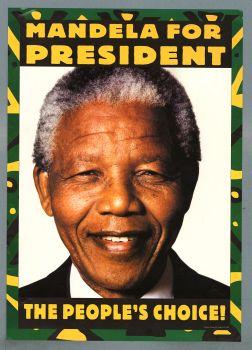1374 BC Ugarit (Syria), Astronomy: A solar eclipse was observed and recorded in Mesopotamia by Assyrian stargazers, who wrote that ‘the Sun went down in the daytime.’ Ugarit is on the Mediterranean coast of Syria as indicated below.
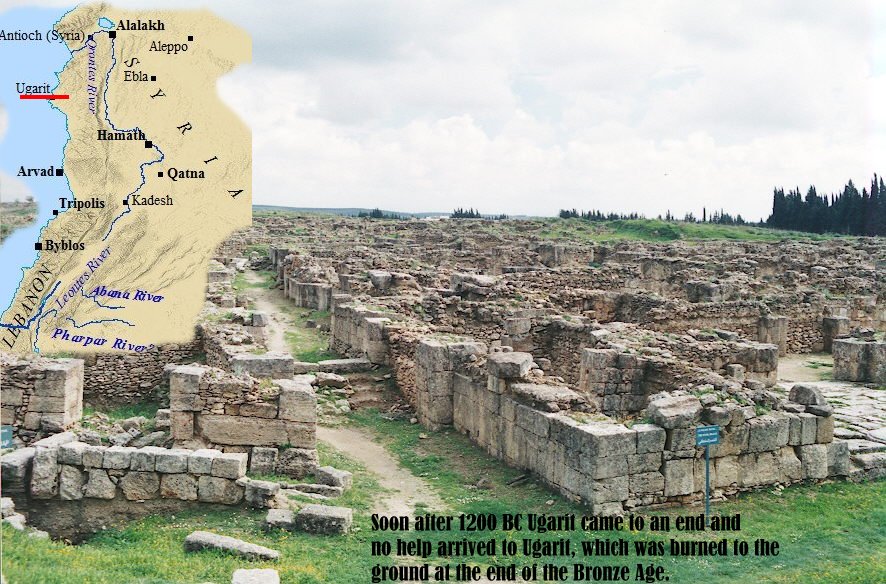
1469 Florence (IT), History: To Bernardo and Bartolomea was born a son, Niccolò Machiavelli. We know a little about his schooling from Bernardo’s day book of expenses, but after about age fourteen he disappears until taking office at twenty-nine. Births and deaths do not usually make this summary but Machia is an exception.
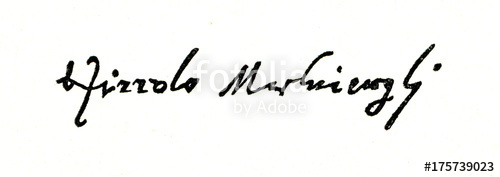
1841 Auckland, History: New Zealand was declared a colony separate from New South Wales and has stayed separate since, and proud of it!
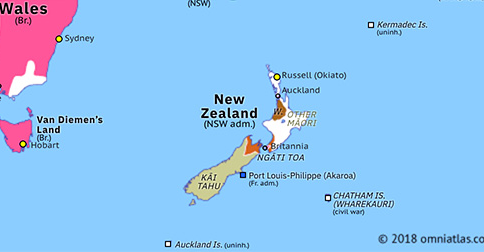
1958 Truman Capote published ‘Breakfast at Tiffany’s’ and no one noticed Holly Golighty until 1961 when along came Edda Kathleen van Heemstra (Hepburn-)Ruston.
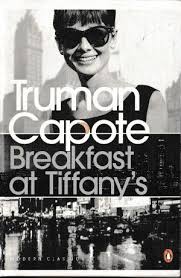
1978 Maynard (MA), Technology: Gary Thuerk of the Digital Equipment Corporation sent a marketing email to 400 users on ARPAnet, which had 2600 users in all. The managers of ARPAnet quickly censured the unwanted solicitation but it was the birth of spam as we know it. The term ‘spam’ was ostensibly derived from a Monty Python skit where a waitress recites a menu in which every item includes spam. It is on You Tube. There is in Honolulu a is a spring festival of …. SPAM, which we have visited to verify its reality. Wikipedia offers an explanation of this oddity. What we know is that Honolulu is only place we have seen spam sushi.
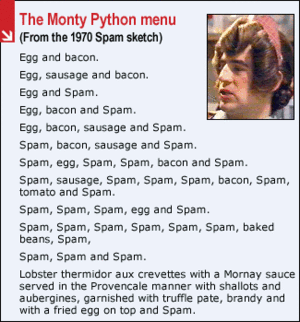
Month: March 2019
2 May
1611 London, Religion: Commissioned by the king in 1604, working from Hebrew texts, forty-seven savants completed a new translation of “THE HOLY BIBLE, Containing the Old Testament, AND THE NEW: Newly Translated out of the Original tongues: & with the former Translations diligently compared and revised, by his Majesties special Commandment.” Thomas Hobbes in 1651 (Leviathan) was one of the first to refer to it as the ‘King James Bible’ and that entered common parlance (without a possessive apostrophe, it must be said). This regally sanctioned edition is replete with emancipatory rhetoric that would be invoked in the French Revolution, by abolitionists, and many others attacking authority. It was the version favoured by the church school I attended. See the book pictured below for Enlightenment. I saw Bragg interviewed about this book by one of the darlings of ABC journalism who was uninformed, ignorant, and aggressive to compensate for being unprepared.
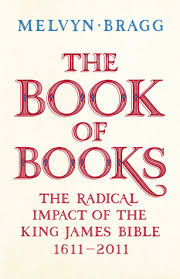
1670 Quebec, Commerce: The Hudson Bay Company (HBC) (Compagnie de la Baie d’Hudson), or The Bay, received a permanent royal charter granting it a monopoly trade in furs over the expanse shown below. Most of the members of the company at this time were French. It remains in business as a department store, having outlasted such rival European trading companies as the Dutch East India Company, the Dutch West India Company, the South Sea Company, Jacob Astor’s American Fur Company, the Royal African Company, and the mightiest of all, the East India Company. Shopped in more than one.
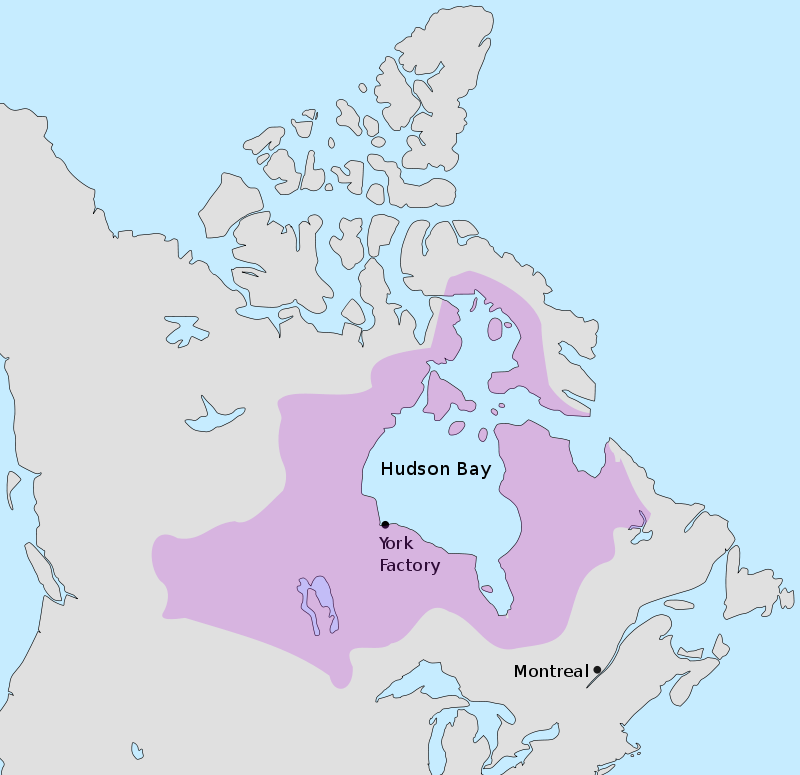
1829 Fremantle (WA), History: Captain Charles Fremantle of HMS Challenger hoisted the Union Jack and claimed the area for the crown of England. This is one of the last parts of Australia to be claimed. The Swan River had been so named by the Dutchman Willem de Vlamingh in 1697 because of the black swans he saw. Been there a few times.
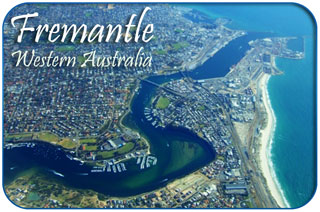
1885 Holyoke (MA), Literature: Good Housekeeping debuted. It offered information about running a home supplemented with literary offerings, and solicitation of reader questions, suggestions, and contributions. In 1900 it began testing consumer goods. In 2006 there were 4.6 million paid subscriptions. Its authors have included Somerset Maugham, Edna St Vincent Millay, and Evelyn Waugh. Seen it in passing, of course, but never looked at one. My loss.
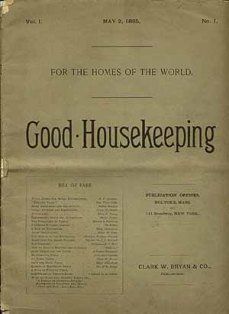
1989 Budapest, Politics: Hungarian border guards turned blind eyes on East Germans passing through Hungary to Austria: tens of thousands of them. The Berlin Wall was circumvented and the Iron Curtain lifted.
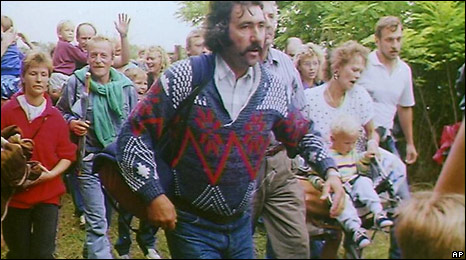
1 May
1851 London, Culture: The Great Exhibition opened in the purpose built Crystal Palace, a giant glass-and-iron hall. There were 14,000 exhibits covering eight miles of tables over nearly a million square feet. Many of the displays were new technologies of the time, including false teeth. But the Crystal Palace itself was the centrepiece. After the six months of the Exhibition it was moved to Sydneham and substantially rebuilt, bankrupting the consortium that owned it. There was no money for upkeep and the iron rusted, and the glass was pitted by pollution, dirtied, and cracked. In 1936 it was ravaged by fire. While arson was suspected no charges arose, and the building was so under-insured it could be neither repaired nor re-built. It was the first World’s Fair and another soon followed in 1853 in New York City.
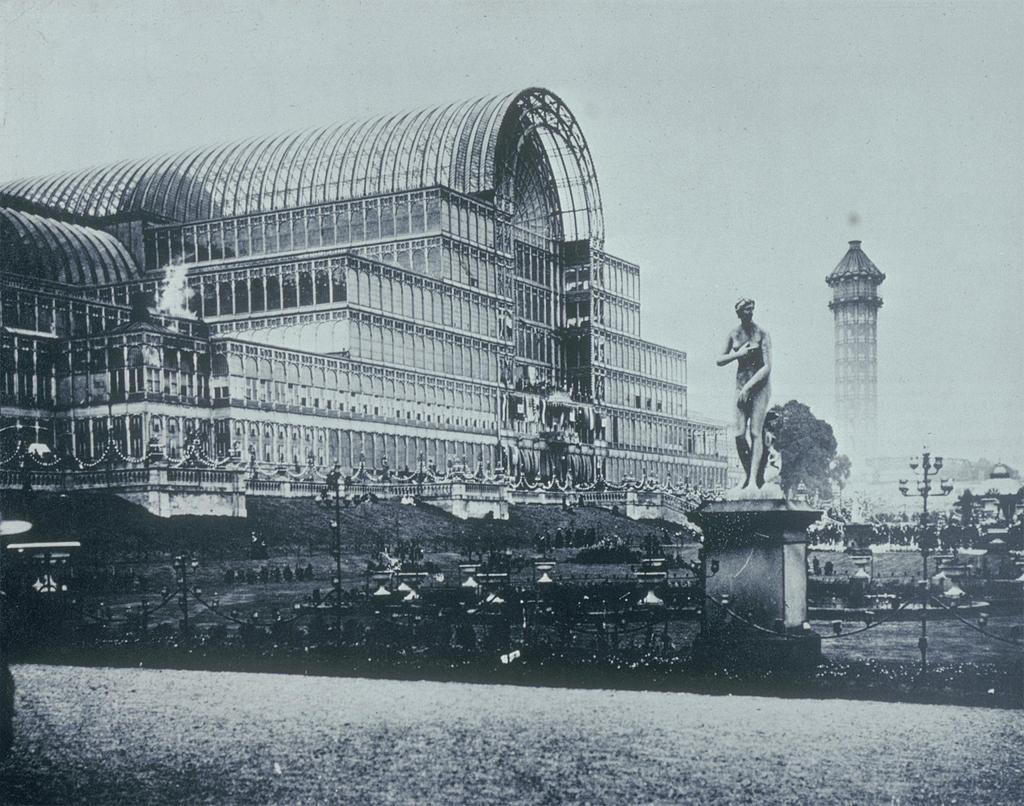
1886 Paris, Labour: May first has long been the first day of spring in the Northern Hemisphere. After the Haymarket Strike and Massacre, a gathering of international labour leaders called for a day of remembrance and to continue to campaign for an eight-hour day of work. 1 May became Labour Day. Over time the name has been changed and changed back and in some jurisdictions the date has been shifted to September, but it started in Chicago and was christened in Paris. The Labour Day parade shown below was in Brizzy a few years ago.
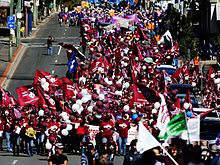
1926 Dearborn (MI), Industry: The Ford Motor Corporation adopted the forty hour week for its employees. It the first major corporation to do so. See the entry for 1886 above for some context.
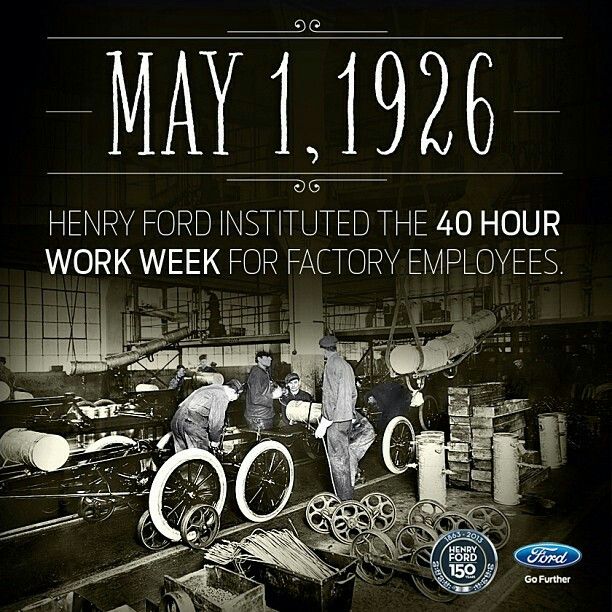
1931 New York City, Architecture: The Empire State Building was dedicated by President Herbert Hoover who pressed a switch in his White House office to turn the lights on in New York City. The consortium lead by John D Rockefeller which funded it did so in part to show confidence in the economic recovery of New York City. The entire building went up in just over a year, under budget and well ahead of schedule. During certain periods of building, the frame grew an astonishing four-and-a-half stories a week.
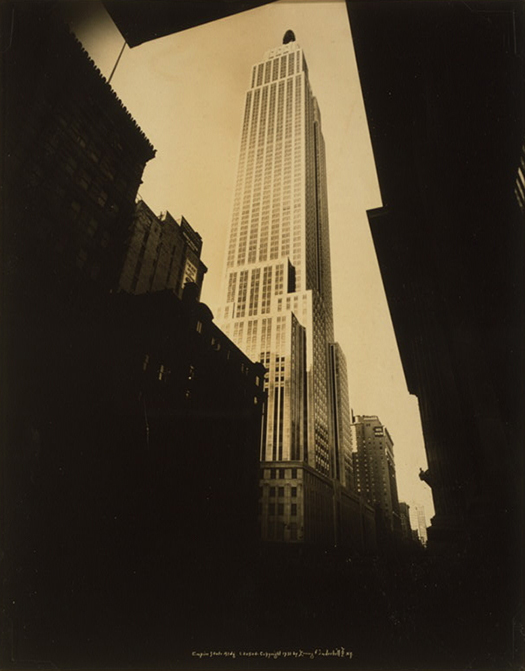
1941 New York City, Cinema: In the RKO Palace Theatre Citizen Kane premiered. The Hearst Empire — think Murdoch — attacked the film for its portrayal of a thinly disguised megalomaniac named William Randolph Hearst long before its release so that the Radio City Music Hall refused to screen it fearing commercial reprisals, relegating it to a smaller, more out of the way theatre but adding to the publicity.
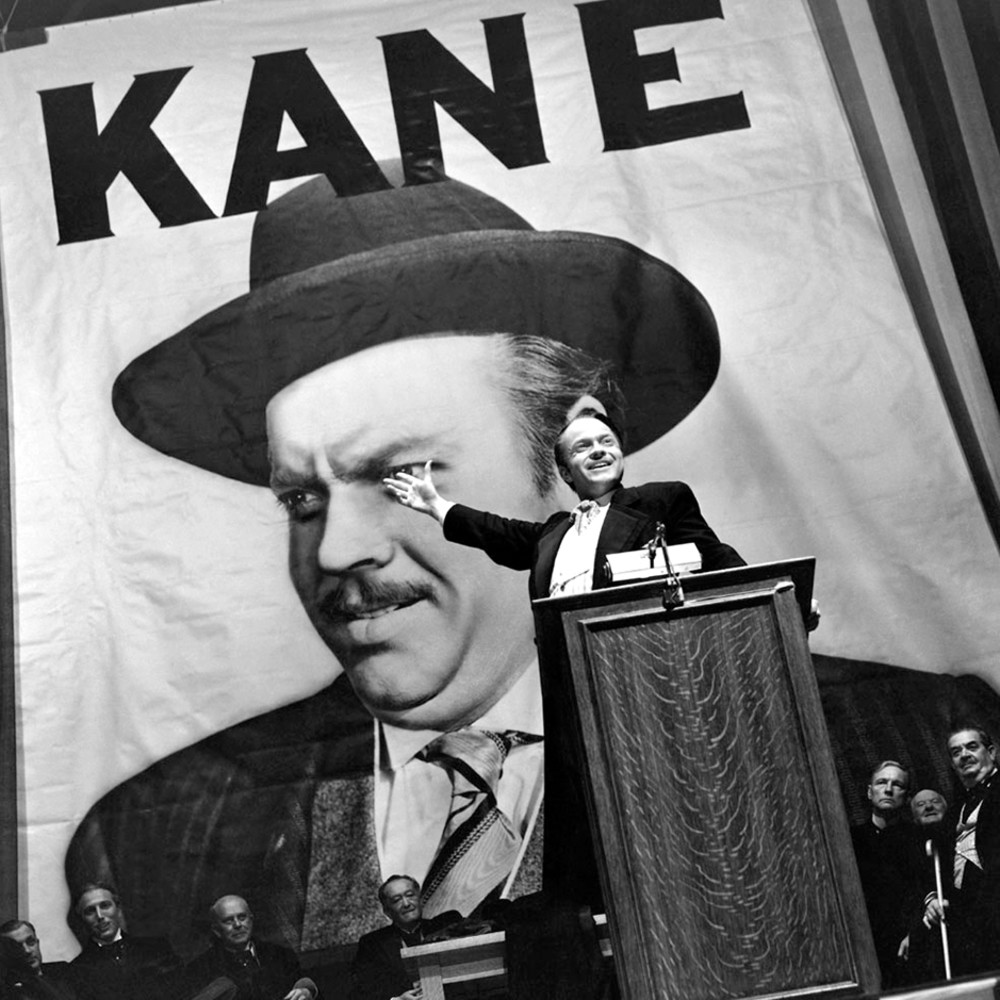
30 April
1661 Tai Pei, History: The Dutch established a fort called Zeelandia on Formosa to protect the trade of the Dutch East India company in north Asia.
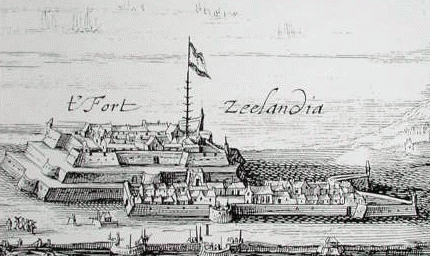
1948 Bogota (CL), Politics; The Organisation of American States treaty was signed by eighteen nations as the successor to the Pan American Union first proposed by José de San Martín and Simón Bolívar in 1826. The OAS was a creature of the Cold War and has fostered peaceful conflict resolution and democratic practices among its now thirty-five members. It has also worked against the traffic in drugs, while promoting freer trade among its members. The image below shows the network of cooperation among its members. Note that Canada did not join until 1990.
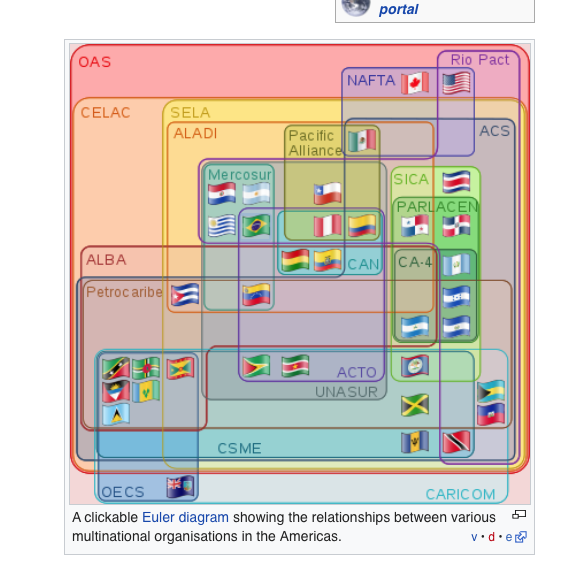
1948 Amsterdam (NL), Technology: The Land Rover was revealed in an automobile show. It was built as a general purpose working vehicle that could tow another, take a load, winch itself out trouble, pass through mud holes, and keep going and going, all in para-military green and khaki. Seat cushions, doors, heating, spare tires were not included. In 1976 the one millionth Land Rover came off the assembly line in Birmingham.

1987 Gatineau Park (QC), Politics: The Meech Lake Accords were signed by Canadian Prime Minster Brian Mulroney and the ten premiers. It accommodated Quebec’s ambitions to be a ‘distinct society,’ but left open the future of indigenous peoples. These two features aroused subsequent opposition and ratification by provincial legislatures failed. Intended to quell separatism in Quebec, the result stimulated it. Mulroney went into the conference with the largest majority ever held in the House of Representatives, but by 1993 his Conservative Party was reduced to two seats of 295.
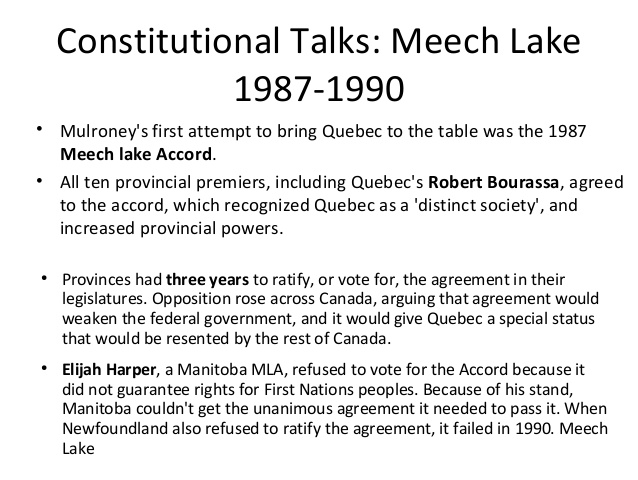
1993 Geneva (CH), Technology: CERN published the protocols of the World Wide Web in the public domain, free to one and all. Get clicking!

James Klotter, ‘Henry Clay: The Man who would be President’ (2018)
GoodReads meta-data is 536 pages, rated 4.24 by seventeen raters.
Genre: biography, presidents, leadership.
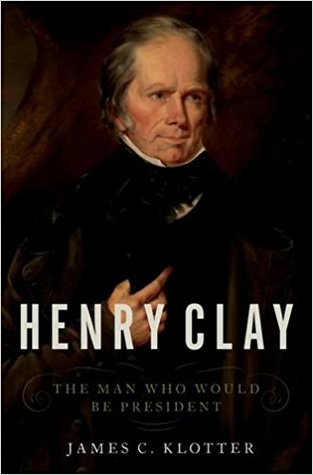
Verdict: One of the best president that never was.
‘I’d rather be right than president,’ quoth Harry Clay (1777-1852), and he was right. Compromise was possible and, more importantly, it was preferable to conflict.
Clay was that rarity in the Nineteenth Century, a full time professional politician who did little else but politics. Yes, he had a law practice and occasionally he took cases, and yes he had a farm in Kentucky that prospered, but neither of these latter interested him, whereas politics consumed him. Like Cicero, like FDR, like Clemenceau, he found the zoo of politics all-consuming.
His finest hours were undoubtedly in the House of Representatives where as Speaker he was instrumental in averting several crises by finding the common ground among conflicting parties, mostly about slavery, states rights, and tariffs. He never supposed a problem was intractable, nor that fighting it out was best. He combined, per this biography, spell-binding oratory when that was required, with the patience of Job in cajoling, coaxing, inching toward a paper thin agreement that would stave off the crise de jour, always in the hope that the fire-eaters would cool off for a time. As they cooled, another compromise might be possible, and so on and on without end. As he never supposed a problem was intractable he also never supposed problems could be made to disappear — poof! — but rather they could be managed. The Missouri Compromise, the admission of Texas to the Union, the Compromise of 1850, the Tariff of 1833 that quelled the nullification crisis, and numerous other less well known measures all bore his fingerprints.
Many obituary writers on his death feared the worst and they were right. Without Henry Clay to find the way of peace, the way would be to war, and it was.
The oratory was at the stump in the long-winded speeches typical of the day, and the book gives little sense of these, but we may be sure they were studded with references to American history and the Bible. Clay was not, and did not pretend to be, religious. Only late in life did he become a member of a church. He did attend churches services now and again but that seems to have been more social than devotional. This indifference was often attacked by opponents without being decisive.
The cajoling and coaxing was often done in private over a glass of whiskey and a cigar. He managed to keep personal relations with some of his most direct opponents like Martin van Buren. They would slug it out at the dais of a public meeting, and then retire to Clay’s hotel room for a drink and a bragging contest about children and then grandchildren. Like many others he found it impossible to maintain a personal relationship with Andrew Jackson. But then neither could Jackson’s creature Van Buren.
Clay was a centrist and that never appealed to the ultras of the continua. He wanted slavery to end and proposed measures that would — in time, a lot of time — lead to that abolition, maybe. That displeased both the slavers and the abolitionists. He wanted industrial development but not a tariff that penalised agriculture, including cotton. That displeased the free traders who wanted no tariff and the protectionists who wanted a high tariff.
As a centrist what he wanted most of all was union and stability. To get that Hobbesian compromises had to be made. It is in that context that he said ‘I’d rather be right than [be] president.’ He was right, a compromise on that occasion was reached and it held for a decade, a long time in politics.
The list of offices he held on Wikipedia is exhausting but not exhaustive because it does not include his service in the Kentucky state legislature.
US Senator, 1849-1852, 1831-1842, 1810-1811, and 1806-1807.
Secretary of State, 1825-1829. Speaker of the House of Representatives 1823-1825, 1815-1820, 1811-1814. Member of House of Representatives from Kentucky 1823-1825, 1815-1821, 1811-1814.
In addition to these offices in 1814 he was also a commissioner to negotiate the Treaty of Ghent with Great Britain to end the War of 1812, where he is credited with driving a hard bargain.
His presidential campaigns as a Whig are these:
1824 lost to JQ Adams in a four-way contest who defeated (General) Jackson
1832 lost to (General) Andrew Jackson
1840 Sought but did not get nomination – (General) Henry Harrison did
1844 Lost to James K Polk as stand-in for (General) Jackson
1848 Sought but did not get nomination – (General) Zachery Taylor did
Even in death his influence continued in his search for compromise and his firm commitment to Union embodied most notably in his one-time fellow Whig smf Kentuckian, Abraham Lincoln, who expressed admiration for Clay throughout his own presidency.
There is a superb last chapter that I wish all biographers would imitate. It reviews Clay’s career and life, enumerates his achievements, assesses them, and puts that in the context of what followed, and ended with the heritage he left.
The author notes the domination of military men in presidential politics at the time with some counting and quantifying that surprised me. See the parenthetical references to Generals in the list above of presidential races. Point taken. Against that background Clay’s accomplishments seem even more admirable.
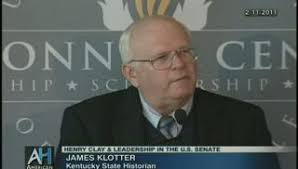
James Klotter is Kentucky State historian with a long list of publications on the Blue Grass State from whence came my father.
I listened to it on Audible, and found the reading difficult to bear. The narrator affected a breathless staccato delivery that exhausted this listener in about fifteen minutes. My listening was episodic.
‘Tommy Douglas’ (2011) by Vincent Lam
GoodReads Meta-data is 208 pages, rated 3.96 by 95 litizens
Genre: biography, leadership
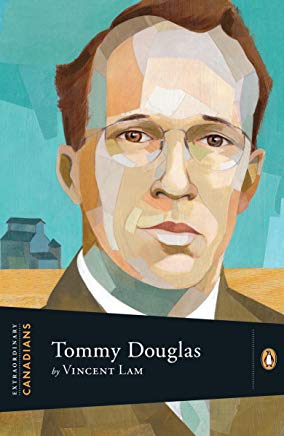
Verdict: One of kind.
When the BBC ran its ‘Greatest Briton’ contest in 2002, it started a trend quickly aped by other broadcasters looking for a ready-made audience to offer advertisers. In Portugal the contest led to António Salazar and in Finland to Carl Mannerheim. In Canada, the CBC version yielded Tommy Douglas (1904-1986). Tommy who? He was neither a founder nor a general nor a wartime leader. But he certainly was a great man. Intrigued? Read on.
The BBC exercise yielded the obvious: Winston Churchill. A few readers will recognise Salazar as the long-serving dictator of Portugal, and fewer still will recognise Mannerheim as the Russian-speaker who created and re-created Finland. (Books about both of these Greats are discussed elsewhere on this blog. Get clicking.) But will any but Canucks recognise Tommy Douglas. Read on and be informed.
Scots-born Douglas was brought to Canada by his immigrant parents. His father, a soldier in the Boer War, wanted a better life for his children. Young Tommy contracted osteomyelitis and doctors prepared to amputate his right leg. However, an orthopaedic surgeon who happened to be visiting the hospital offered to treat the boy experimentally with a new technique at no charge. He did and the leg was saved, and an apostle of universal, free medical care stood up. However, the bad leg cut short his pugnacious boxing career.
He became a Baptist preacher and worked hard at caring for the flock, his own and more. He saw many social evils and injustices that others took for granted as challenges to be overcome. His church was in Weyburn Saskatchewan (near Dog River). He burned with energy and went here and there, as preacher, hockey coach, social worker, advocate, visitor, volunteer fire fighter, fund-raiser, confidant, snow shoveler, carer, friend in need, and more.
Douglas enlisted for World War II in 1939 and worked his way up to Captain but when overseas deployment came, so did a rigorous physical examination, which found that leg deficient and he was discharged. His unit, by the way, went to Hong Kong and was obliterated by the Japanese attack.
He was a bright boy and a bright man and he had gone to Chicago to do a Masters Degree. How that was funded I am not sure. He returned and transferred to McMaster University where he completed a thesis endorsing eugenics. At the time the Swedish Labor Party was putting into practice a national program of eugenics that today no one wants to remember. Indeed I have seen efforts to blame others for this clearly enunciated program.
Douglas is quoted as dismissing the intellectuals he met in Chicago as airheads of sorts. Too bad he did not make it to Hull House on the near West Side to meet Jane Addams. I suspect Douglas was a small fish out of water in Chicago and left before he settled. On this point, as on many others, the author takes Douglas’s own words as complete and final. Not everyone else will.
His personal experiences and observations of his parishioners drove him into politics. First he advocated their causes individually but soon he saw patterns and quickly became a founder of the Co-operative Commonwealth Federation (Farmer-Labour-Socialist) or CCF for short, which entered Canadian politics as a third force between the Liberals of McKenzie King and the Conservatives of Robert Bennet. He was one of seven in the first class of CCF members of the Federal parliament in distant Ottawa and went at things headlong. He was a stemwinder at the dais (pulpit) and the author quotes from his many speeches.
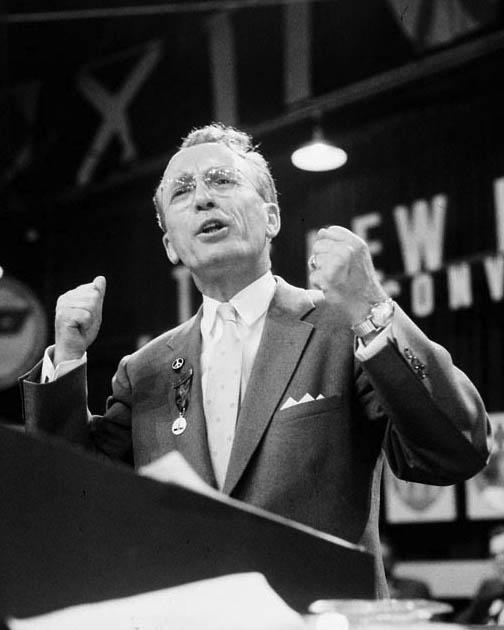
Douglas at the podium.
We get less sense of what Douglas contributed to the grind of parliament in committees. The world then as now is full of people parading their virtues, but it is always short of grinds to get anything done. Why do I think of Bernie Sanders?
On the stump Douglas was a mercury, here, there, everywhere. He could make himself heard in a crowd, match wits with hecklers, and undo opponents’ argument, while maintaining a common touch. It is no wonder that McKenzie King tried several times, perhaps on the advice of his long-dead mother, to recruit him to the Liberals. No wonder John Diefenbaker, a Conservative Prime Minister, emphasised their commonalities.
He shifted from Ottawa to Regina, from federal to provincial, and to one of the poorest provinces at that. Needless to say Pox News and the opposition castigated the CCF as Reds and ran endless scare campaigns, but since the vast majority of voters in Saskatchewan had little to lose, they had little to fear from the wild accusations. That fatalism made the CCF and Douglas a better bet than the status quo. In 1944 the CCF won in a landslide, wining 47 of the 52 seats with 53% of the vote, and Premier Douglas set to work. The author suggests that the voters understood and accepted Douglas but I rather think there was some of the fatalism mentioned above at work, too.
For the Douglas government the solution to every problem was a crown corporation to supply rural electrification, school buses, cross walk safety, and so on. The size of the Saskatchewan government grew, but Douglas, unlike so many others of like mind, was conscious that before money was spent it had to be earned, and the priority was always economic development to generate that income to spend on the social programs.
Douglas was the visionary leader with the rare sense to have deputies who were excellent managers to finance and direct work toward the goals he articulated, chiefly George Cadbury, C. M. Fines, and Clarence Gillis.
He continued in office until 1961, during which time his major achievement was a single-payer, universal hospital and health care program. One of the things that made medical care easier to develop in Saskatchewan was the tradition of town doctors there, as in some American states. A town doctor was employed by the town and paid in cash, as a way to recruit and retain a doctor in what was otherwise a local barter economy and a poor one at that, unlikely to attract a young medical school graduate with a family to support. A doctor choosing such a community could be assured of a monetary income and a client base. There were thirty of forty of these in Saskatchewan when Douglas became premier.
Saskatchewan also introduced no-fault automobile insurance, enhanced and enforced pension laws, nationalised electricity companies to provide rural electrification, allowed public sector unions, and passed a bill of rights that protected Inuits, native Indians, and Francophones. The New Eden was in the endless flatlands of Saskatchewan.
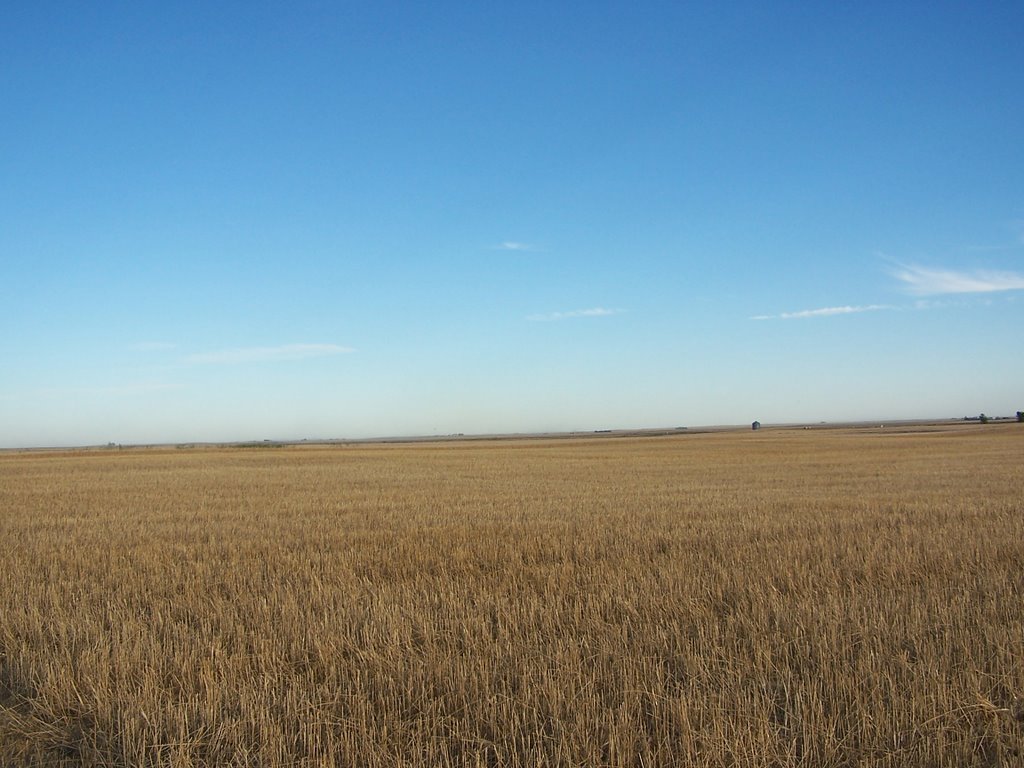
Saskatchewan became a political laboratory in which new practices and programs were tested. By 1958 a Conservative government in Ottawa began to create a national health insurance program derived in good part from the province’s example. Yes, a conservative government adopted a program pioneered by a socialist government. That is the way reality works.
The Murdoch press of the Pox News of the time and place saw the sky falling every day in these measures.
While all this was going on the provincial government ran a budget surplus. Read that twice. Ran a financial surplus. In fact, the Douglas government paid off the considerable deficit left by the previous Liberal government which had thrown money around to buy votes.
He resigned as premier in 1961 to head the rebranded CCF in Federal politics as the New Democratic Party (NDP) which he did until 1971 when he stepped aside as leader in one of the most gracious such moves ever to be made. He remained in parliament, a dutiful backbencher until 1979 when he retired. His successor was a long-time collaborator, the Francophone Jew from Montreal, David Lewis who set a few records of his own.
The role of the NDP in Federal politics was largely symbolic. The substantive efforts of the Party were always in the programmatic politics of the provinces, and over the years it has governed in Saskatchewan long after Douglas left, as well as Alberta, British Columbia, Manitoba, Nova Scotia, Ontario, and Yukon Territory.
Politics makes strange bed fellows. True. In the 2011 Canadian federal election the NDP won a record 103 seats nationally to make it the offical opposition to the Conservative government. Strangely none of those seats were in Saskatchewan. Stranger still, 59 of those seats came from Quebec. Yep, though Quebec had never been fertile ground for the NDP in provincial politics, largely because its policy space has been occupied by the Parti Québecois. Indeed it barely existed on that side of the Ottawa River Valley. In the previous 50 years only two NDP MPs (one of them David Lewis as above) had ever been elected from Quebec’s 70+ federal constituencies. That 2011 result in Quebec was due to an odd combination of local factors and it was not sustained in the next election in 2015. Nor did it invigorate a Quebec provincial branch of the NDP. The NDP wave in Quebec went as fast as it came.
In October 1970 Douglas spoke and voted against the declaration of the War Measures Act. Just as he had spoken and voted against the same act used to intern Japanese-Canadians in 1942. Liberty should not be sacrificed to maintain liberty. His was virtually the solitary voice of reason in a time of unreason.
Douglas’s achievements were many, real, and enduring. All hail! Yet it is also true that big and bigger government is not always the answer. What Douglas did not confront and what the author seems to be unaware of is that big government can be the problem just like big business, big religion, and big labour. When there is a single supplier of a public good, it can be held hostage in a number of ways.
In Australia for a generation labour unions used the monopoly suppliers as cash cows. State owned train and bus services were locked in an endless round of strikes, usually arising out of disputes among unions, not bargaining with the employers who really gave in to avert strikes and passed the cost on to the taxpayer. Likewise the big single supplier presents many opportunities for corruption from within. Again the examples are local when contracting is so lucrative because of the scale, the temptation to exploit loop holes is great. NSW State Rail had an unenviable record of such shenanigans. A giant single supplier like Telecom had become an independent country in which users were not tolerated. It existed to serve its employees and no one else.
Nor does free health care relate directly to his own experience. In fact, one might argue the reverse. The surgeon who operated on him devised techniques on his own and used Douglas as an experiment. In a centralised and controlled health service there could well be no opportunity for a surgeon to think outside the conventions, and still less to use a patient as an experiment.
Time to dismount the high horse. (Until next time.)
*****
The book certainly conveys the man but this reader wished the author had put a little more distance between himself and the subject. It is all too much Tommy said it and that made it so. When others opposed a suggestion of Tommy’s the author can only conclude the motivation is bad will. What other reason could there be? Well, I don’t know and I did not find out by reading this book. But I am pretty sure that not all his opponents were the selfish malcontents they appear to be in these pages.
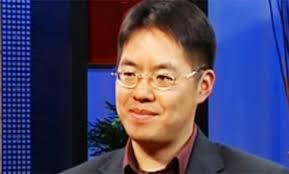
Still it is fitting that Vincent Lam is a medical doctor who works in the system Douglas was instrumental in creating.
A personal note, I had been in Canada less than a month when on campus I walked by an auditorium full of people. I peered in a back door and stood there to see Tommy Douglas holding forth. I knew not who he was but I recognised the Baptist preacher in him.
Later in the early 1970s I sat through a few NDP meetings out of zoological interest, and one, I think it was in Ottawa, was memorable. This was the time when the so-called Waffle Faction was destroying the NDP from within. No sewer socialism with practical gains for citizens satisfied the lefter-than-thou purist of the Waffle. A speaker who believed in decision-making by attrition at the branch meeting had been haranguing we few sitting on the floor for at least an hour (believe me when I say it seemed like much more) when a fellow scientist broke cover to ask if Canada was so bad (corrupt, capitalist, racist), as the speaker had been saying, what was the model to follow? ‘Albania!’ said the orator without missing a beat or batting an eye. Albania!
Coda: These surveys of the greatest individual often end with a political leader despite the lazy five-cent cynicism that the media promotes about politicians and that most of the public seems to imbibe. Though I expect done in Australia, and so far as I know it has not been done, despite the desperate efforts of broadcasters to latch on to superficial ideas and do them to death, Don Bradman would surely pip Robert Menzies and Gough Whitlam along with Victor Chang, Alfred Deakin, Howard Florey, Cathy Freeman, Percy Grainger, Shirley Hazzard, Xavier Herbert, Frank Lowy, Eddie Mabo, David Malouf, Douglas Mawson, Gustav Nossal, Mark Olphant, Albert Namatjira, Charles Perkins, Joan Sutherland, and Nancy Wake.
29 April
1624 Paris, Politics: Louis XIII appointed Cardinal Richelieu chief minister of the Royal Council of France, making visible and official the Cardinal’s pervasive influence as l’Éminence gris. He advocated exploration and settlement in New France (Quebec), funding Samuel de Champlain’s expeditions. He was also busy with Les Trois Mousquetaires as seen below.
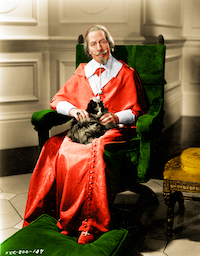
1769 Glasgow, Engineering: James Watt secured Patent 913 for ‘A method of lessening the consumption of steam in steam engines’ – the separate condenser which remains in common use. It increases the efficiency of steam engines.
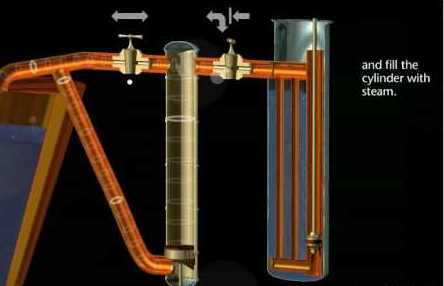
1852 London, Language. Physician Peter Roget published the ‘Thesaurus.’ He had been an inveterate list maker since childhood, compiling word lists all along and when he retired from medicine at sixty, he devoted himself to words full time. The complete title of the first edition is ‘Thesaurus of English Words and Phrases Classified and Arranged so as to Facilitate the Expression of Ideas and Assist in Literary Composition.’ It went through twenty-twenty-eight printings in his life (he made it to 90) and more thereafter with revisions. I have used it a lot, especially in thesis writing to find le mot juste and vary word choice.

1917 St Catherines (ON), Technology: Swedish-born immigrant Gideon Sundback patented an all-purpose Y-fastener. It was one of many hooks and fasteners he devised. The term ‘zipper’ came a few years later when it was used for boots. Much later the zipper made it to clothing.
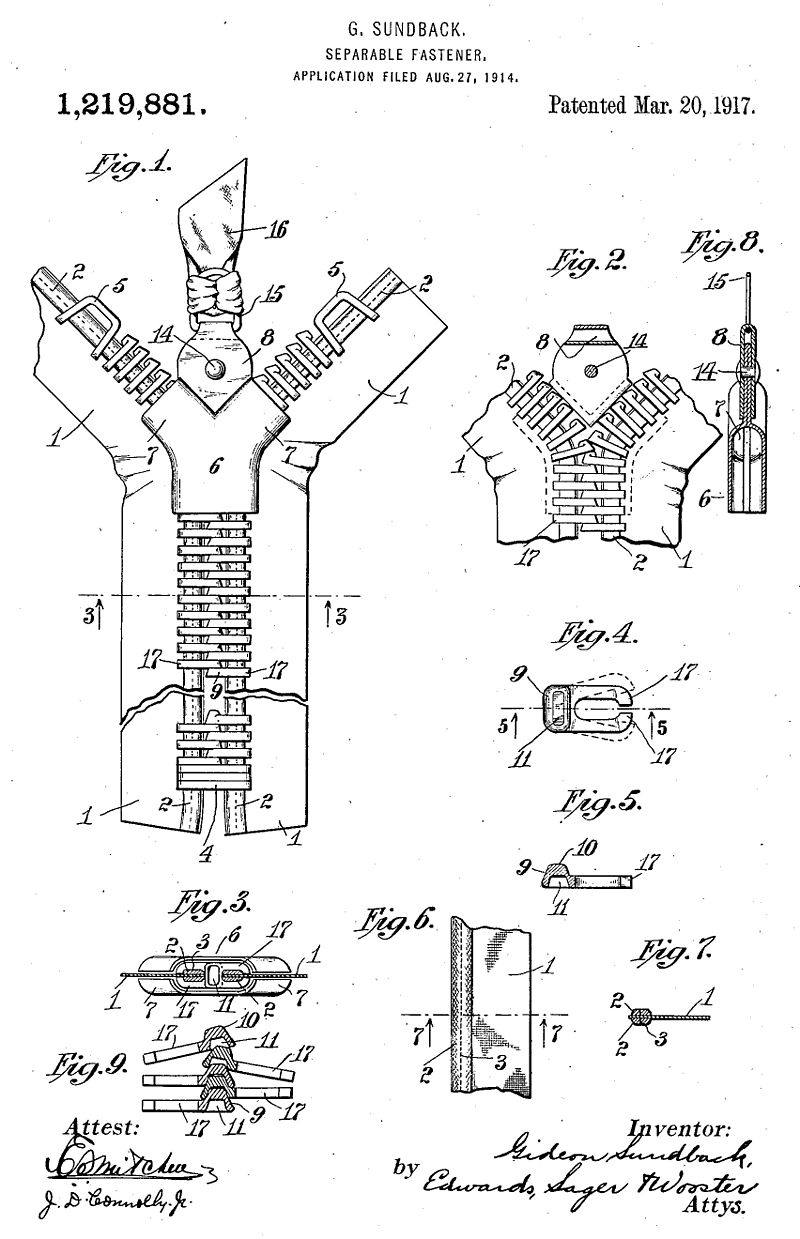
1927 Rockbank (VI), Technology: The Imperial Wireless Service between Australia and Britain began. It provided high speed telegraphy and radio pictures. At its peak Rockbank had 94 antennas and three steel masts of 75 meters height. One transmitter remained in service until 1969. The buildings were called Fiskville in honour of the engineer who built it, a Mr Fisk. It is 60 kilometres east of Melbourne and much of the site is preserved. One of the first buildings is shown below.
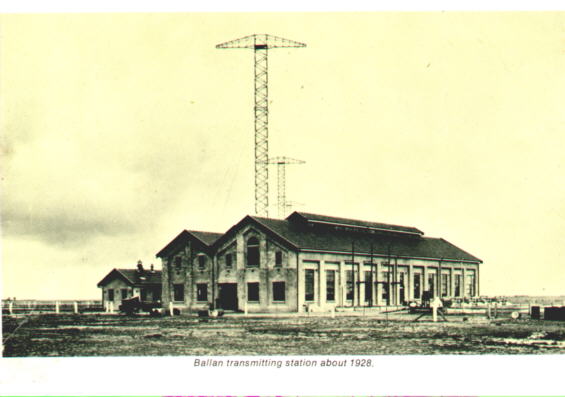
28 April
1611 Manila, Philippines, Education: This is the foundation date of the Pontifical and Royal University of Santo Tomas, The Catholic University of the Philippines, oldest existing university in Asia and largest Catholic university in the world with 45,000 enrolments in 2017. Never been there but when in search for Machiavelliana I had an email correspondence with Machiavelli Chocolatier – Glorietta Mall in Manila. I was trying to mail order some of the product but the effort came to naught.
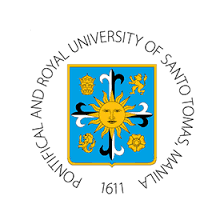
1789 Pitcairn Island, History: The Mutiny on the HMS Bounty was led by a badly miscast Omahan Marlon Brando. I know because I have seen the movie. Captain Bligh was later in New South Wales and precipitated the Rum Rebellion when he tried to sober up the soldiery. No prizes for guessing who won that one. We live in an area once called the Bligh Estate, land which he left to his daughter Elizabeth, who married Maurice O’Connell, ergo O’Connell Town, an enclave within Newtown. Got it?

1925 London, Literature: Faber and Faber publishers hired St Louis-born T.S. Eliot as an editor, allowing him to quit his job as a bank clerk at Lloyd’s of London, and devote himself full time to penning ever more incomprehensible, baffling, impenetrable, and obscure poetry that has kept the talking heads busy explaining it. Eliot had to work hard at achieving what he achieved as shown in marked up text below. Small solace for us auditors and readers.
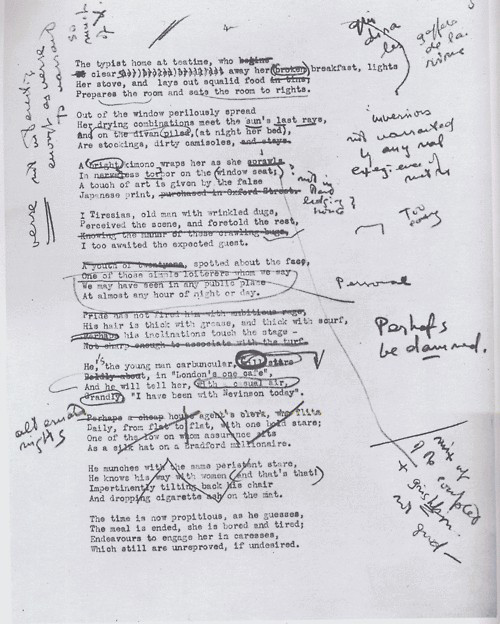
1937 New York City, Medicine: Yellow Fever vaccine announced. The fever had spread with increased world transportation in the early 20th Century. In this year Max Theiler and Hugh Smith at the Rockefeller Foundation improved a vaccine so much that it was 99% effective. That vaccine, 17D, remains in use today until the anti-vaxxeers get to it.

1967 Ïles Sainte-Hélène y Notre Dame (QC): On the hundredth anniversary of Canadian Federation, the World’s Fair Expo 67 was held. Fifty million visitors passed through 90 pavilions from 62 countries and corporations. It left behind mountain of unpaid debts from the construction and Habitat 67, one of the constructs, 354 concrete boxes which the undergraduate designer thought preferable to houses or apartments. Most are one bedroom. It could be worse, the original design called from 1000 such blockhouses. This event was the model of the 1976 Olympics which left behind even larger debts and larger white elephant. Yes, he was an undergraduate when he concocted it, and he is on the TED trail even now justifying it. Get over it!

27 April
1509 Venice (IT), Religion: Pope Julius II ex-communicated the state of Venice. The Venetian Senate kept this fact secret from its population and the word did not get out. When the geo-political situation changed, the Pope rescinded it. If one thing distinguished Venice, it is the ability to keep secrets, those masks are more than symbolic, as indicated in the books on Venice discussed elsewhere on this blog, as well as Donna Leon’s krimis.

1895 Colombo (SL), Technology: The World Transportation Commission visited Ceylon. The Commission was sponsored by the Field Museum in Chicago to gather information about foreign transportation systems, especially railroads. It included engineers, photographers, artists, and translators on a three-year tour. Below is a street shot from the Commission. We have been to the Field Museum.
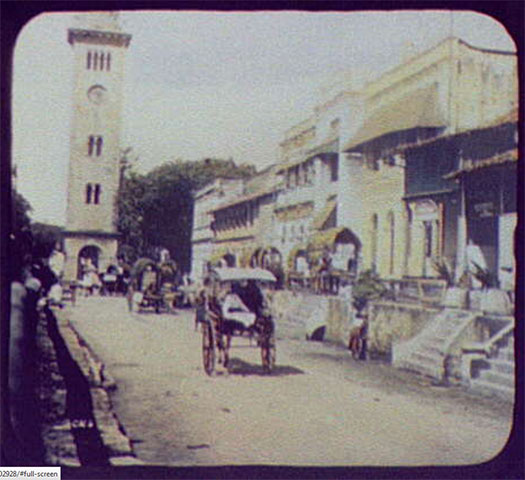
1904 Canberra, Politics: The first Labor government in the world is sworn in. Thirty-seven year old Chris Watson was Prime Minister. This government lasted until August 1904. By the way, Watson was born in Valparaiso Chile. He was the stepson of Mr Watson. He is in the centre of the front row below with cabinet members. Watson is a Canberra suburb where I stayed once when in residence at ANU.
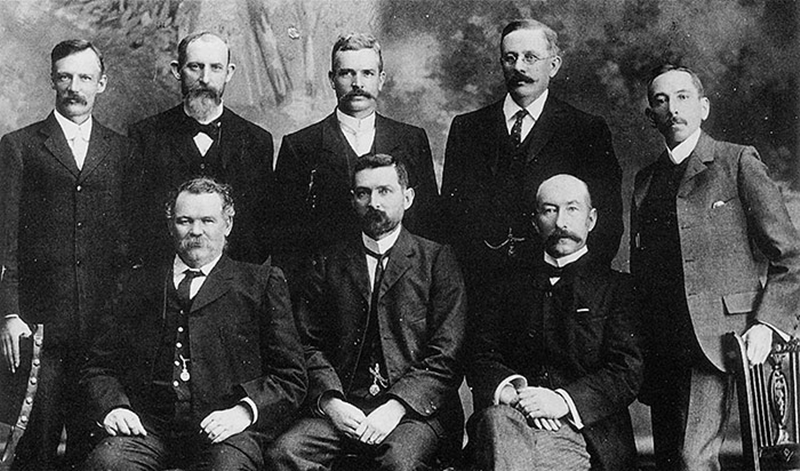
1971 Fremantle (WA), History: Relics and artefacts form the wreck of the Dutch trading ship Batavia (lost in 1629) were recovered. The Dutch government transferred all rights to its wrecks found in coastal waters to Australia, and these specimens are now in the Maritime Museum in Fremantle. We have been to this museum. The Batavia figures in Nicholas Hasluck’s intriguing novel ‘The Bellarmine Jug’ (1984).

1981 Palo Alto (CA), Technology. Xerox included a ball mouse as part of the 8010 Star Information System workstation. Eeek! The mouse entered the marketplace.

26 April
1336 Rousillion (FR), Tourism: Francesco Petrarch climbed Mont Ventoux for the pleasure of the view from atop. That such travel might be recreation was novel. Once there he contemplated nature. He then wrote about the experience; he is sometimes called the first tourist. Many Tour de France riders have climbed Mont Ventoux while contemplating human frailty.
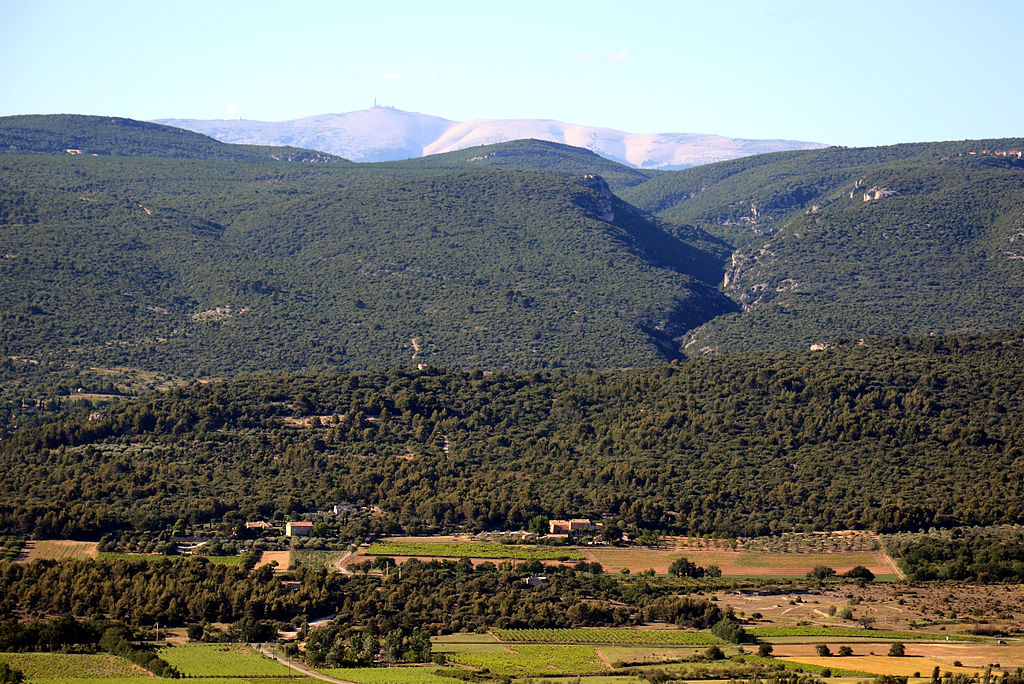
1890 Sydney, Literature: Banjo Paterson published ‘The Man from Snowy River.’ See the sun-baked ten dollar bill below. He also authored ‘Waltzing Matilda,’ which should be the national anthem instead of the snooze that is. Paterson seldom set foot outside Sydney but extolled the life of the bush.
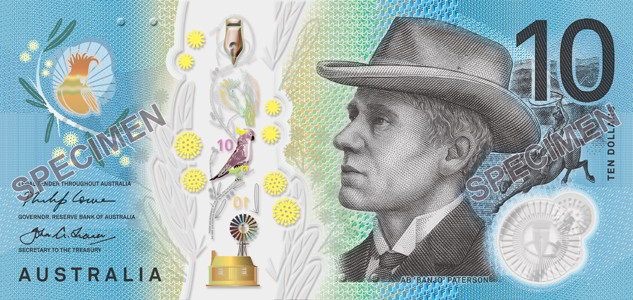
1929 Karachi (India), Aviation: Two RAF officers completed the first non-stop flight from Cranwell Base in Lincolnshire taking just under 51 hours, covering 4,130 miles in a Long-Range Monoplane. It is slightly longer than Charles Lindberg’s route from New York City to Paris of the same time.
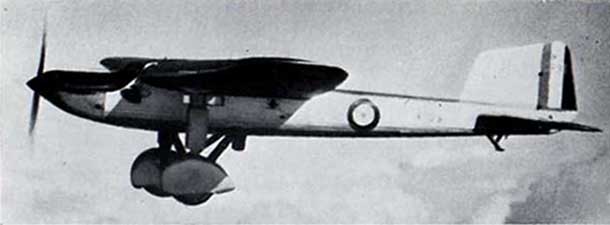
1939 Canberra, Politics: Robert Menzies became Prime Minister, and when he resigned in 1966 he was Australia’s long-serving prime minister.
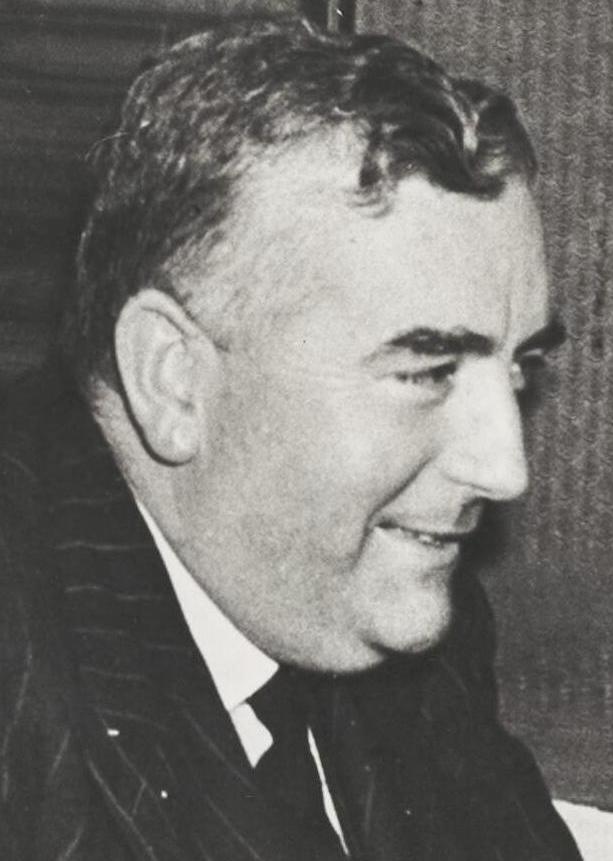
1994 Pretoria (ZA), Politics: A free and multi-racial vote elected Nelson Mandela president of the Republic of South Africa.
